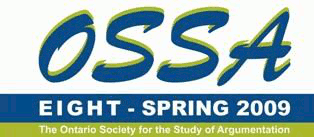
Location
University of Windsor
Document Type
Restricted Access
Start Date
3-6-2009 9:00 AM
End Date
6-6-2009 5:00 PM
Abstract
There exists an organic parallel between rhetoric and democratic governance. This parallel can best be called “generative logos”—a term used by the Stoics. This helps explain why emotional motivation can, in democratic arrangements, help create stability. In this sense, it is generative logos that unites Plato and Aristotle on the instructive potential of rhetoric in the context of direct democracy—a political arrangement both philosophers, much like they did rhetoric, viewed as being amorphous.
Creative Commons License

This work is licensed under a Creative Commons Attribution 4.0 International License.
Response to Submission
Manfred Kraus, Commentary on Shirali
Reader's Reactions
Manfred Kraus, Commentary on Shirali (June 2009)
Plato, Aristotle, and Generative Logos in Democratic Deliberation
University of Windsor
There exists an organic parallel between rhetoric and democratic governance. This parallel can best be called “generative logos”—a term used by the Stoics. This helps explain why emotional motivation can, in democratic arrangements, help create stability. In this sense, it is generative logos that unites Plato and Aristotle on the instructive potential of rhetoric in the context of direct democracy—a political arrangement both philosophers, much like they did rhetoric, viewed as being amorphous.

